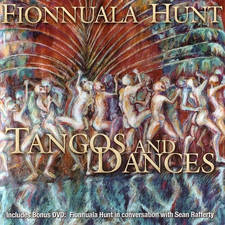The Full Works Concert - Friday 30 August: Vaughan Williams
Our month of Great Composers Full Works Concerts reaches its climax with two hours devoted to the best of Ralph Vaughan Williams.
Tonight's concert opens with Vaughan Williams' most popular piece, The Lark Ascending. It was written in 1914 but the outbreak of World War I meant he had to put its premiere on hold. It was given in 1921 by the violinist Marie Hall – the woman for whom Vaughan Williams had written it. Tonight we hear the violinist Iona Brown with the Academy of St. Martin in the Fields conducted by Neville Marriner.
Vaughan Williams began collecting folk songs in 1902 and ultimately gathered more than 800. Their distinctive harmonies and rhythms had a profound influence on his own, unique musical voice. The English Folk Song Suite was commissioned by the band of the Royal Military School of Music and was premiered on 4 July 1923. The Suite contains a number of different folk songs from Norfolk and Somerset, including Seventeen Come Sunday, Pretty Caroline, Dives and Lazarus, My Bonny Boy, Green Bushes, Blow Away the Morning Dew, High Germany, and The Tree So High.
The theme from Fantasia on a Theme of Thomas Tallis was discovered by Vaughan Williams when he was commissioned to put together the 1906 edition of the English Hymnal. His orchestration of it resulted in an unmistakably British sound and has remained one of his most popular pieces.
The Concerto for Oboe was written in 1944 for the virtuoso Leon Goossens. The intended premiere on 5 July was cancelled because of air raids in London, so the Liverpool Philharmonic Orchestra, conducted by Malcolm Sargent, gave the first performance in Liverpool two months later. The concerto grew out of a musical idea that the composer had discarded for his Symphony No.5, so musically the Oboe Concerto follows in that vein. Vaughan Williams skilfully scaled down the orchestra to give the oboe the space to soar.
The Folk Songs of the Four Seasons combined the composer's love for traditional English music with his strong support for amateur music making. The work was the first piece ever commissioned by the National Federation of Women's Institutes and Vaughan Williams chose folk-songs from his own collection, gathered more than 40 years earlier - between 1904 and 1910 - as well as songs collected by his friends. Tonight, Anne-Marie plays the orchestral suite that Vaughan Williams later made of the work.
Five Variants of Dives and Lazarus is a work for harp and string orchestra, based on one of the folk songs quoted in Vaughan Williams' English Folk Song Suite. Vaughan Williams composed the work on commission from the British Council to be played at the 1939 World's Fair in New York City. The first performance was by the New York Philharmonic at Carnegie Hall on 10 June 1939, conducted by Sir Adrian Boult.
Premiered in March 1914, the Phantasy Quintet was written at the request of W.W. Cobbett - an industrialist, violinist, chamber music enthusiast and patron. Each of the movements in Vaughan Williams' four movement work is based on a theme heard at the outset by the first viola. The Prelude is followed by a lively Scherzo, a Saraband, and a folk-like Burlesca.
Vaughan Williams: The Lark Ascending
Violin: Iona Brown Neville Marriner conducts the Academy of St. Martin in the Fields
Vaughan Williams: English Folksongs Suite
James Judd conducts the Royal Liverpool Philharmonic Orchestra
Vaughan Williams: Fantasia on a Theme of Thomas Tallis
Barry Wordsworth conducts the New Queen’s Hall Orchestra
Vaughan Williams: Oboe Concerto
Oboe: David Theodore
Bryden Thomson conducts the London Symphony Orchestra
Vaughan Williams: Folk Songs of the Four Seasons – Suite
Martin Yates conducts the Royal Scottish National Orchestra
Vaughan Williams: 5 Variants of Dives and Lazarus
David Willcocks conducts the Jacques Orchestra
Vaughan Williams: Phantasy Quintet
Nash Ensemble











